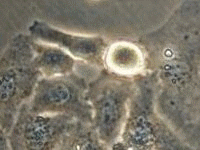But my life's like that now. The results of one scan can throw all my plans up in the air.
And the results of my last scan weren't the best I could have hoped for.
I'm far from dying yet though. I got offered the place here at St Catherines so that I could get on top of my pain.
I've been taking the wrong attitude to my pain. I've stoically tried to tough it through during the day, leaving me knackered at night. This approach has meant that I simply haven't left myself open to the joys that life can offer. Most nights I've ended up frantic as the pain bites in: no good for me, and no good for my wife who gets disturbed every time.
So over some time here, with the help of the nurses and medics my meds are being adjusted, and I'm finding out that stuff I didn't think worked does work, as well as how to space it, how to be less anxious about it.
 |
| "Juletræslys". Licensed under CC BY-SA 3.0 via Wikimedia Commons - https://commons.wikimedia.org/wiki/File:Juletr%C3%A6slys.jpg#/media/File:Juletr%C3%A6slys.jpg |
And being here has also given me a chance to talk to friends and family about the reality of my illness. I think maybe I tend try to protect people from my bad news. This hasn't done them any favours, and I've been told off about it! The word 'hospice' on the front door means there can't be any pretence. I have a pretty aggressive cancer. It's not behaving like a normal bowel cancer. Even with the very best chemotherapy my chances are maybe one in twenty.
Of course his doesn't mean I've no chance. I know people who've survived worse odds. I'm hoping to get onto a clinical trial, and will work with Christie if any become available. The lads play Dungeons and Dragons. They know how hard it is to roll a 20 with a 20 sided dice!
Christmas was lovely here.
It is a privilege to wake up among the dying. It is a privilege to be cared for by dedicated people, including volunteers who have come in over Christmas and the 'dog end' days of the year to support the people here. When the news is so packed tight with inhumanity, it is a true privilege to see countless small acts of humanity happening, in the very darkest times of the early morning, in the warmth of the cleaner's voice as she moves from room to room, in the humour and stories of the nurses and helpers.
As I'm writing, a lovely lady has come in. She takes all the flowers donated to St Catherines' and turns them into beautiful smaller arrangements that she leaves in every room. Every few days she comes back to refresh or replace them, she has been doing it for years and nothing seems to stop her. Humanity expressed through her artistry and persistence.
Years ago I read a great book by Boykin and Schoenhofner that seems to be a well kept secret. It's called 'Nursing as Caring' and it's always stuck in my mind far more than the technocratic rather mechanical ways of theorising nursing care.
I think the future study of great care, the understanding of what really makes good person centred support for people will actually be an inquiry into our own humanity and how to use it effectively for people. I'm witnessing that when a caring organisation enables everyone in it to find ways to express their humanity, to listen to people and deliver what is important to them, it becomes a true House of Care, a genuinely nurturing environment very different from some of the toxic institutions we seem to create so easily. It's too easy to sacrifice our own humanity in the name of 'professionalism' or for countless other persuasive reasons.
The Christmas tree in the chapel here is incredibly beautiful. Children have cut out paper angels, and written messages to hang on the tree for their parents who died here: "I hope heaven is special mummy".
I managed to spend time out at home over Christmas too, and had great family meals on Christmas Eve and Christmas day, great fun playing Articulate! I think the plan is for me to spend a few more days here, then to get home. I'm going to use that time to do some writing. Isabel Allende said "Write what should not be forgotten". I'm hoping to write some very personal and private stuff for my family and build it into some kind of personal cancer journal that includes some of the person centred thinking tools like my life story, my hopes and fears and a few things I'd like to do. I don't have many big 'bucket list' ambitions. A trip to Disneyland would be my idea of a nightmare!
I do intend to go to watch the great poet John Cooper Clarke when he appears in Preston, I saw him a few times 30 years ago. He would be the highlight of CND demos in Manchester bringing his cutting cynical humour dispensed in economical rhyme as a great counterpoint to the interminable speeches of the assorted politicians! He's no stranger to death among his friends himself at the moment: "I could go to five funerals a week. But that many vol au vents isn't good for you"
Time with family. Time with the people special to me. That's what I'm focussing on right now.





